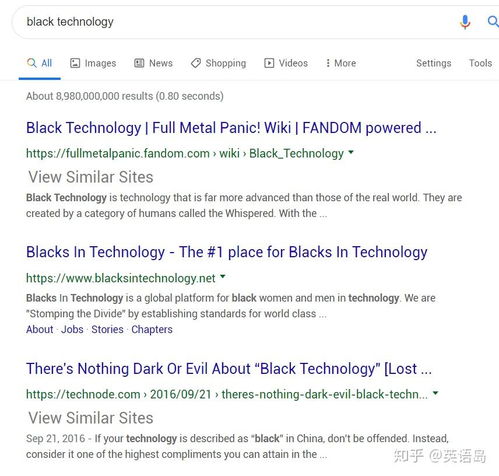How to Say 'Quot 无所谓 Quot in English?
How to Say "无所谓" in English: Unraveling the Nuances of Indifference

In the vast landscape of human emotions, "无所谓" holds a unique place. It's a Chinese expression that encapsulates a sense of indifference, lack of concern, or nonchalance towards a particular situation or outcome. When translated into English, however, finding an equivalent phrase isn't as straightforward as one might think. The nuances of "无所谓" span a range of emotions and attitudes, making it a versatile yet complex expression.

For those interested in learning how to convey this attitude in English, read on to unravel the various ways in which you can say "无所谓" and understand the contexts in which they fit best.
1. "It Doesn't Matter"
One of the most direct translations of "无所谓" is "it doesn't matter." This phrase conveys a clear sense of indifference towards something, suggesting that the outcome or situation in question has no impact on your feelings or decisions.
Example:
"Do you want to go for a walk or stay here? It doesn't matter to me."
2. "I Don't Mind"
Similar to "it doesn't matter," "I don't mind" is another common way to express indifference in English. It suggests a lack of preference or opposition towards a proposed action or choice.
Example:
"Would you prefer coffee or tea? I don't mind either way."
3. "I'm Not Fussed"
This British English expression carries a casual and relaxed tone, indicating that you're not particularly bothered or concerned about something. It's often used in informal conversations.
Example:
"What time should we meet for lunch? I'm not fussed, as long as it's not too late."
4. "I Don't Care"
While slightly more emphatic than "it doesn't matter" or "I don't mind," "I don't care" conveys a strong sense of indifference or lack of interest. It's best used when you want to emphasize that you have no opinion or concern regarding the matter at hand.
Example:
"What do you think about the new policy? I don't care, it doesn't affect me."
5. "It's All the Same to Me"
This phrase suggests that multiple options or outcomes are equivalent in your view, conveying a sense of equality or lack of difference between them.
Example:
"Should we go out for dinner or stay in and cook? It's all the same to me."
6. "I'm Indifferent"
Using the adjective "indifferent" directly states that you have no strong feelings or opinions about something. It's a more formal way to express indifference.
Example:
"I'm indifferent to whether we win or lose; I just want to enjoy the game."
7. "Take Your Pick"
This expression invites someone else to make a choice, implying that you have no preference and are indifferent to the outcome.
Example:
"Which movie should we watch? Take your pick, they all look the same to me."
8. "No Big Deal"
While "no big deal" doesn't necessarily convey indifference in the same way as "无所谓," it can be used to suggest that something isn't worth worrying about or isn't important to you.
Example:
"I forgot to bring my umbrella. No big deal, it's not raining anymore."
9. "Whatever Floats Your Boat"
This idiomatic expression means "whatever makes you happy" or "do whatever you want." It's often used in a playful or nonchalant way to indicate that you don't care about someone else's choices.
Example:
"You want to go hiking or stay home and watch TV? Whatever floats your boat."
10. "I'm Easy"
In the context of making choices, "I'm easy" suggests that you have no preferences and are willing to go along with whatever others suggest.
Example:
"Where should we eat for dinner? I'm easy, I'll eat whatever."
Contextual Nuances
While these phrases can all be used to translate "无所谓," their applicability varies depending on the context. Some are more formal, while others are best suited for informal or casual conversations. Understanding the nuances of each phrase can help you convey your indifference more accurately and appropriately.
For instance, "I don't care" might be too strong in a professional setting, while "it's all the same to me" might sound too passive or uninterested in a personal conversation. Choosing the right phrase also depends on your relationship with the person you're speaking to and the tone you want to set.
Cultural Considerations
It's worth noting that the concept of "无所谓" in Chinese culture often carries a layer of social harmony and non-confrontation. In some Western cultures, expressing indifference might be seen as dismissive or uncaring. Therefore, when translating "无所谓" into English, it's important to consider the cultural context and ensure that your message is received as intended.
Using Body Language and Tone
In addition to choosing the right words, body language and tone of voice also play a crucial role in conveying indifference. A relaxed posture, a neutral expression, and a calm tone can all enhance your message and make it clearer that you're expressing indifference.
In Conclusion
Saying "无所谓" in English isn't as simple as finding a one-to-one translation. Instead, it involves understanding the various ways in which indifference can be expressed in English and choosing the phrase that best fits the context and relationship. Whether you use "it doesn't matter," "I don't mind," or "I'm indifferent," the key is to convey your lack of concern or preference clearly and appropriately.
By mastering these expressions and paying attention to context and cultural nuances, you'll be able to say "无所谓" in English with confidence and clarity. So the next time you find yourself in a situation where you don't care about the outcome, remember that you have a range of options to express your indifference in English.
- 上一篇: 如何进行电脑的硬件组装?
- 下一篇: 手机QQ网页版登录与使用指南
-
 How to Say 'Self-Introduction' in English资讯攻略03-01
How to Say 'Self-Introduction' in English资讯攻略03-01 -
 How to Say 'Smile' in English资讯攻略01-30
How to Say 'Smile' in English资讯攻略01-30 -

-
 How to Say 'Enjoy Life' in English资讯攻略11-06
How to Say 'Enjoy Life' in English资讯攻略11-06 -
 How to Say March 31st in English资讯攻略12-02
How to Say March 31st in English资讯攻略12-02 -













